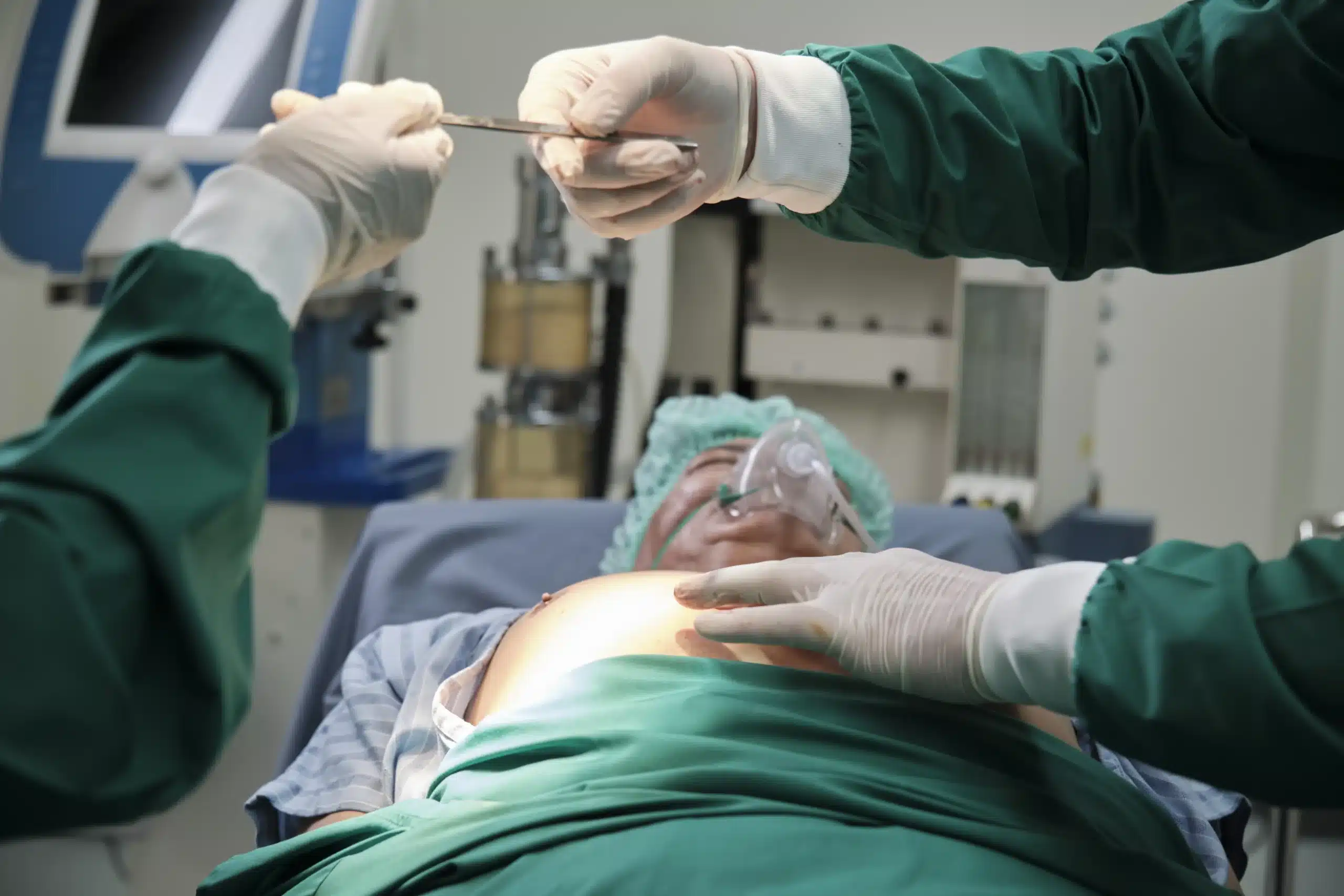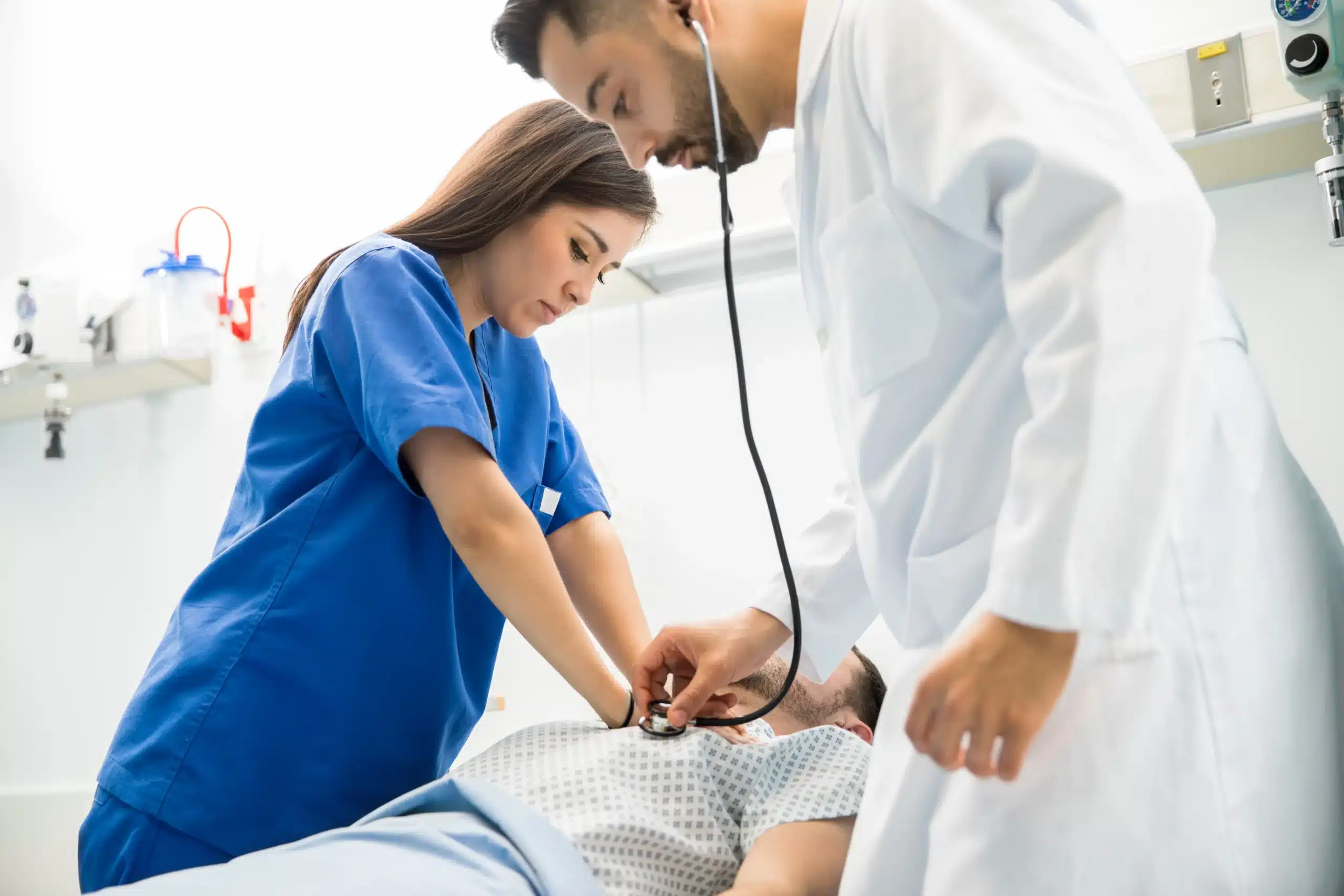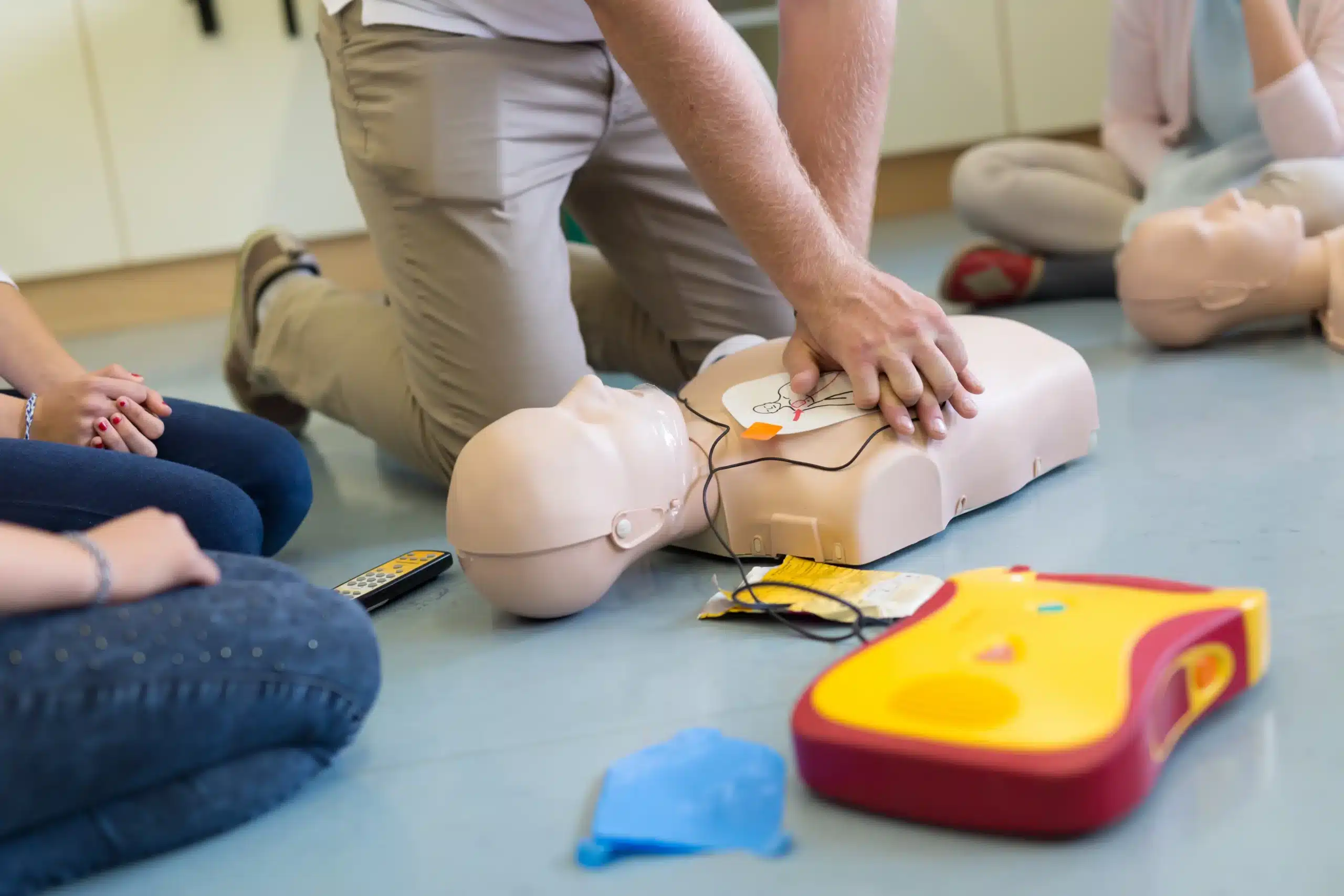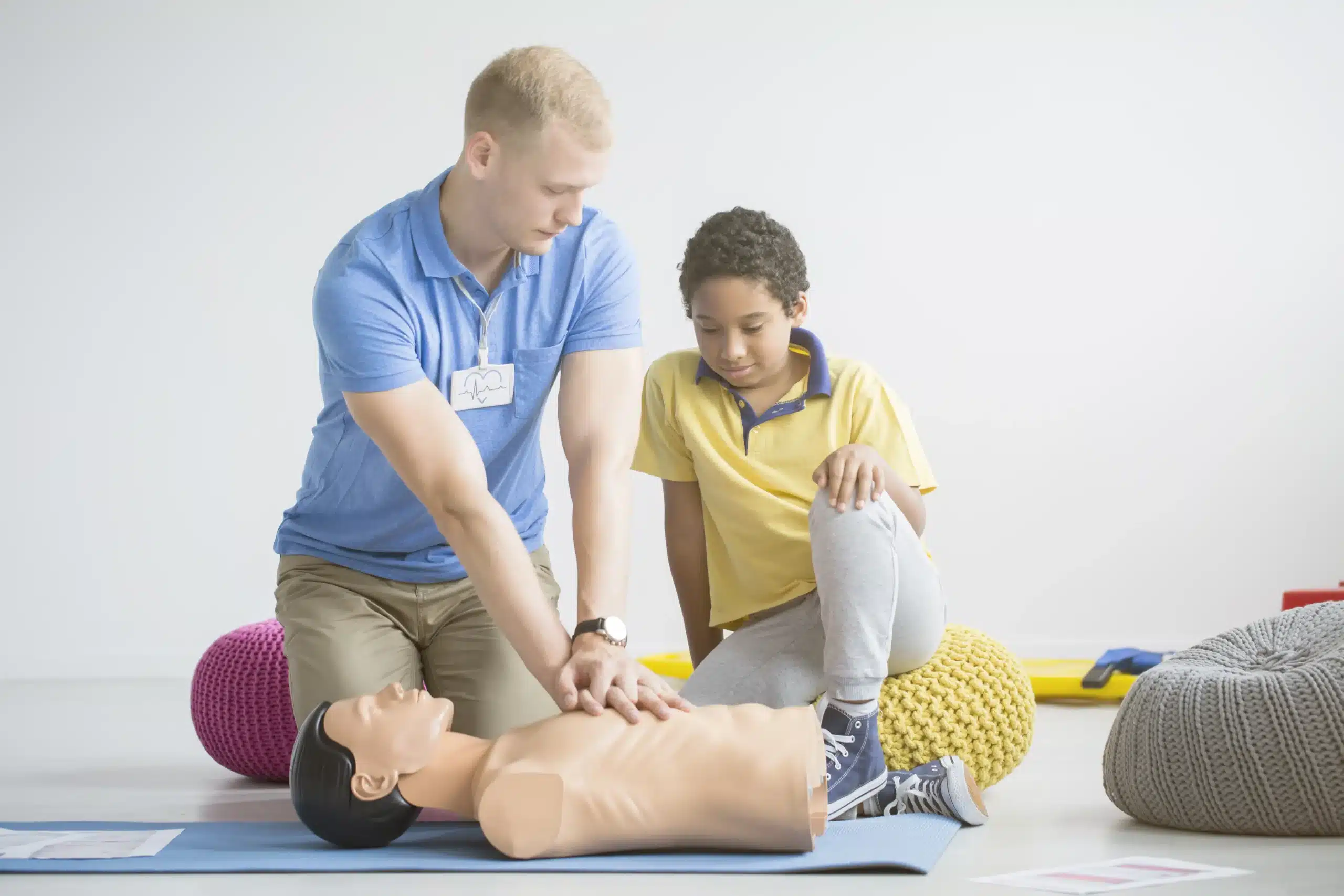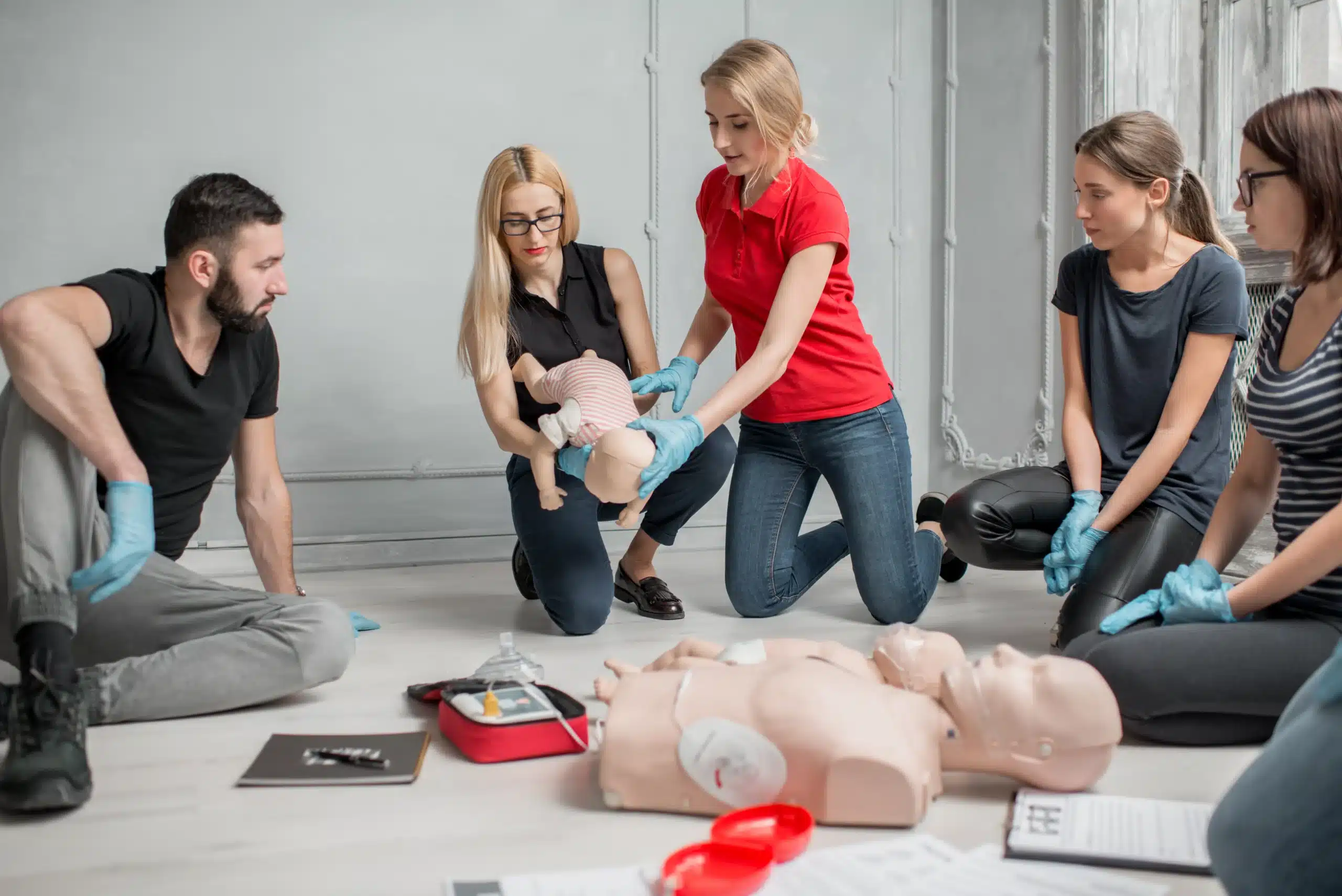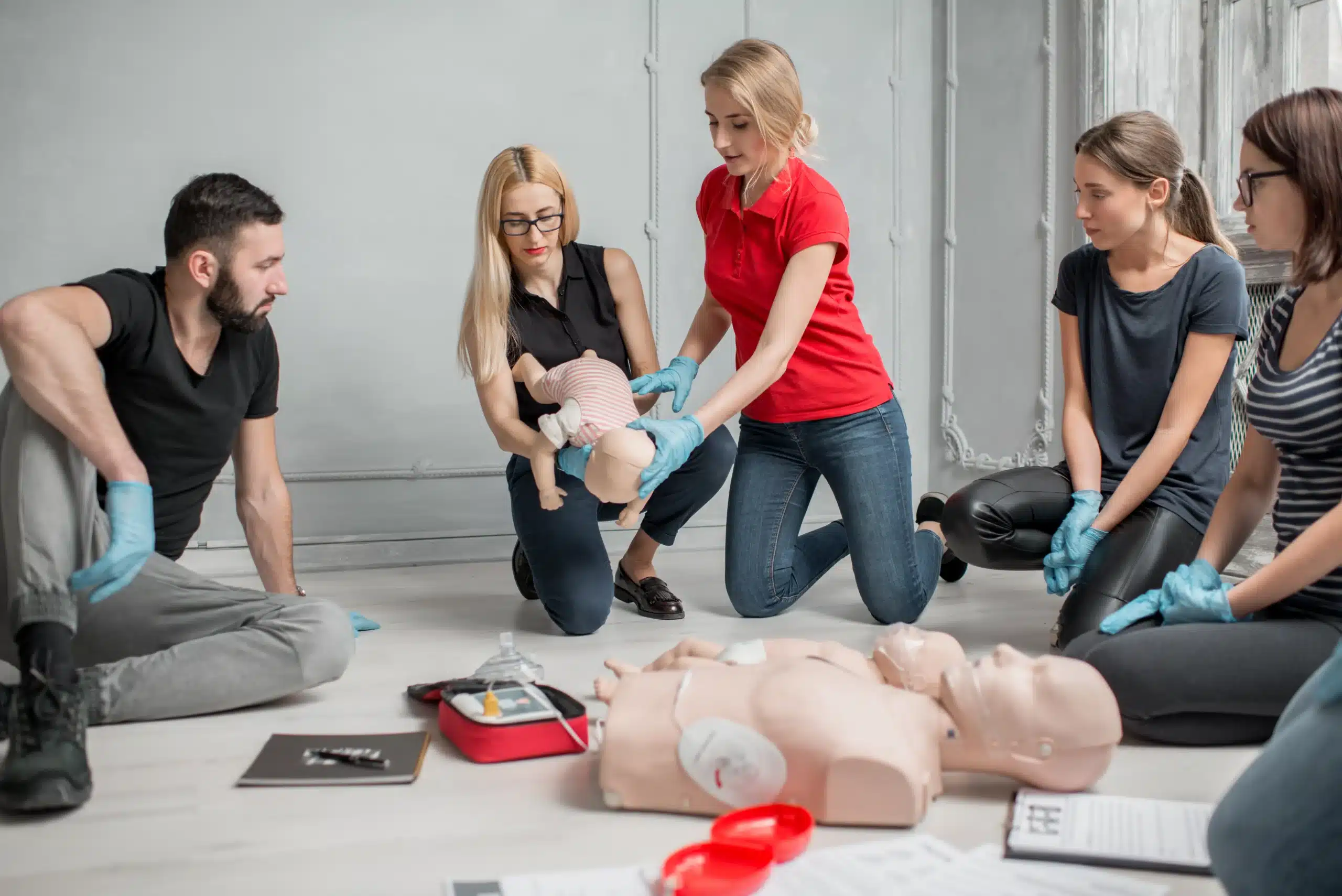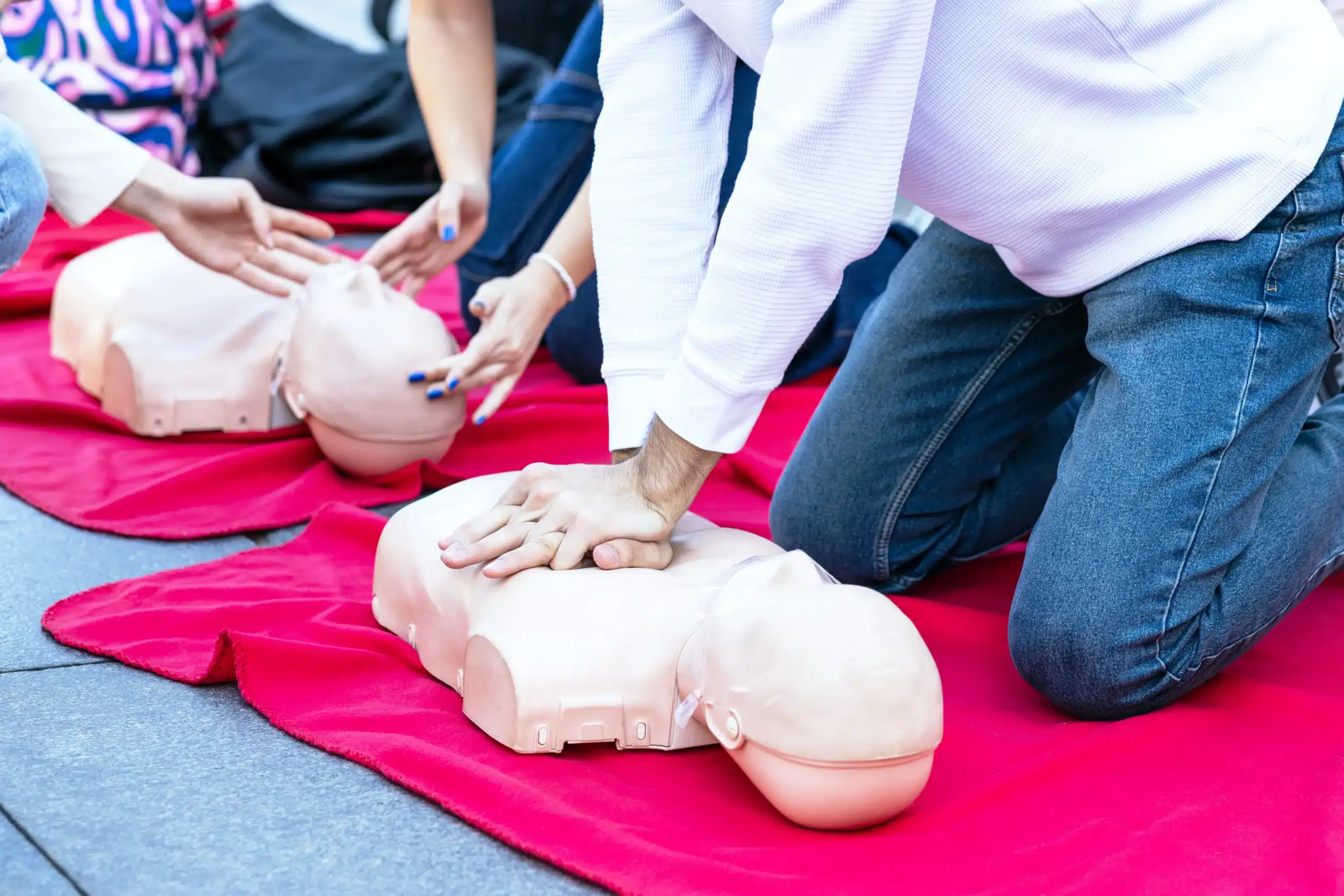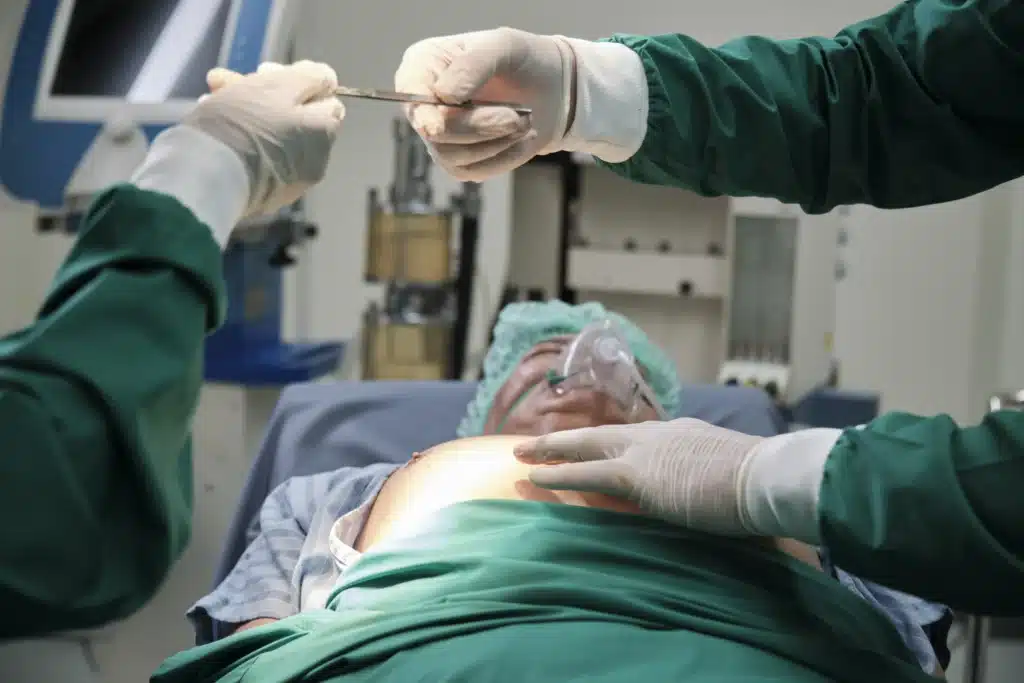Finding the right BLS certification in Berkeley can feel overwhelming, but it doesn’t have to be. This guide simplifies the process, providing clear, actionable steps to help you get certified. Whether you’re a healthcare provider in Berkeley seeking recertification or a concerned citizen wanting to learn essential life-saving skills, we’ll break down the process of obtaining BLS certification in Berkeley. We’ll cover everything from understanding the core components of BLS training to comparing different course formats and providers. We’ll also discuss the costs associated with BLS certification and offer tips for preparing for your course. By the end of this guide, you’ll have the knowledge and resources to confidently choose the right BLS program for your needs.
Key Takeaways
- BLS certification goes beyond basic CPR: It equips you with advanced life-saving techniques like using an AED and managing airways, essential for healthcare providers and anyone who wants to be prepared for an emergency.
- Choose the right BLS course format for you: Whether you prefer in-person instruction, online learning, or a blended approach, consider factors like accreditation, instructor experience, and schedule flexibility to find the best fit.
- Stay current with your BLS skills: Recertify every two years and continue learning through practice and advanced training to maintain your proficiency and confidence in responding to emergencies.
What is BLS Certification?
Definition and Purpose
Basic Life Support (BLS) certification equips healthcare providers and first responders with the skills to handle life-threatening emergencies. It goes beyond basic CPR to include advanced techniques for managing cardiac arrest, respiratory distress, and airway obstructions. Think of it as the next level of training for those regularly encountering medical emergencies as part of their professional duties. This specialized training ensures they can provide a higher level of care in critical situations. You can find more information on our BLS certification page.
Who Needs BLS Certification?
BLS certification is crucial for healthcare professionals like doctors, nurses, paramedics, and other first responders. It’s also beneficial for those working in healthcare-adjacent fields, such as physical therapists, athletic trainers, and other professionals who might need to respond to emergencies. Essentially, anyone who might be the first point of contact in a medical crisis benefits from these skills. BLS training provides the confidence and competence to act quickly and effectively when seconds count. Consider our CPR and First Aid courses in San Pablo if you’re looking to get certified.
Key Differences from Basic CPR
While both CPR and BLS teach life-saving techniques, there are key differences. CPR focuses on the fundamentals of chest compressions and rescue breaths for cardiac arrest. BLS builds upon this foundation, adding training on using automated external defibrillators (AEDs), managing airways, and assisting with choking. BLS also covers advanced techniques like bag-mask ventilation and team dynamics during resuscitation. It’s a more comprehensive approach to emergency care, designed for those who may need to provide support until more advanced medical help arrives.
Find BLS Certification in Berkeley
Finding the right BLS certification course can feel overwhelming with so many options. This section breaks down some of the leading providers in Berkeley to help you make an informed decision.
Safety Training Seminars
Safety Training Seminars offers AHA-certified BLS courses in over 60 Northern California cities, including Berkeley. They pride themselves on convenience, with classes offered daily, and affordability, backed by a low price guarantee. This makes them a practical choice for busy professionals and those seeking value. Safety Training Seminars focuses on high-quality instruction and convenient scheduling. You can find their upcoming CPR and first-aid courses in nearby San Pablo on their website. They also offer EMSA Child Care Health and Safety training. For any questions, you can easily contact them directly.
American Red Cross
The American Red Cross is a well-known provider of BLS training. They offer various learning formats, including in-person classes and blended learning, which combines online coursework with in-person skills sessions. You can explore their BLS course options on their website. This flexibility allows you to choose the learning style that best suits your needs.
American Heart Association
While the American Heart Association doesn’t directly teach courses, they set the standards for BLS training. Authorized training centers, like Safety Training Seminars, deliver these courses and provide AHA-certified BLS provider cards. This ensures your certification meets nationally recognized guidelines. You can often find discounted AHA courses through various platforms like Groupon.
Berkeley CPR Classes
Berkeley CPR Classes specializes in AHA-certified BLS courses, including renewal courses. Their focus on in-person training emphasizes hands-on skills practice, which can be particularly beneficial for those who learn best through direct experience.
Vive CPR
Vive CPR offers a blended learning approach called HeartCode BLS. This involves completing an online portion followed by an in-person skills session with an AHA instructor. This hybrid model offers a balance of flexibility and practical application. You can learn more about their HeartCode BLS class on their website.
Choose Your Course Format and Duration
Finding the right BLS certification course often comes down to format and schedule. Thankfully, there are several options available to fit your learning style and availability. Let’s explore the most common course formats: in-person, online, and blended learning.
In-Person Classes
In-person classes provide a structured, hands-on learning environment. You’ll learn alongside other students, practice skills with certified instructors, and receive immediate feedback. This format is ideal for those who thrive in a traditional classroom setting and value direct interaction. The American Red Cross, for example, offers in-person BLS training for both individuals and groups. This allows for real-time clarification and a more personalized learning experience. You can ask questions and get immediate answers, ensuring a thorough understanding of the material.
Online Courses
If your schedule is tight or you prefer learning at your own pace, an online course might be a better fit. Online BLS certification programs offer the flexibility to study anytime, anywhere. Reputable providers, like Berkeley CPR Classes, offer legitimate online BLS certification that meets the same standards as in-person training. This format allows you to fit the training around your existing commitments. Just be sure to choose a program from a recognized and accredited organization.
Blended Learning Options
Blended learning combines the convenience of online learning with the benefits of in-person instruction. Typically, you’ll complete the coursework online at your own pace, then attend a shorter in-person session to practice skills and demonstrate competency. Providers like Vive CPR offer blended learning courses, such as their HeartCode BLS program, which combines online modules with an in-person skills session led by an American Heart Association instructor. This hybrid approach offers a good balance for those who want flexibility but also value hands-on training. You get the best of both worlds: self-paced learning and direct instructor interaction.
Compare Course Durations
Course duration varies depending on the format and provider. Instructor-led courses, whether in-person or blended, typically range from three to five hours. The American Red Cross notes that their instructor-led BLS courses average four to five hours, while blended learning options can be slightly shorter. Purely online courses can offer even more flexibility in terms of time commitment, allowing you to complete the material at your own speed. When choosing a course, consider the total time commitment required, including both online and in-person components. Think about what works best with your schedule and learning style.
Understand BLS Certification Costs in Berkeley
Knowing the price range for BLS certification in Berkeley helps you budget and find a course that works for you. Let’s break down the typical costs and what to expect.
Average Price Range
BLS certification courses in Berkeley typically cost between $70 and $150. This price range depends on factors like the training provider, whether you choose an online or in-person course, and included materials. Safety Training Seminars offers various American Heart Association courses, including BLS, at competitive prices. Comparing options is always smart.
Discounts and Promotions
Many training centers offer discounts, so keep an eye out for those. You might find savings through group discounts, early registration, or limited-time promotions. Visit the Safety Training Seminars website or contact them to inquire about current deals.
What Your Course Includes
A good BLS certification course provides comprehensive training, blending hands-on skills practice with the knowledge you need. After successfully completing the course, you’ll receive an American Heart Association certification card, valid for two years. This certification is essential for healthcare professionals and anyone responding to emergencies.
Safety Training Seminars’ Low Price Guarantee
Safety Training Seminars, a woman-owned AHA Training Center, offers a low price guarantee. This commitment to affordability means you receive high-quality training without breaking the bank. You can feel confident you’re getting excellent instruction and value.
Prepare for Your BLS Course
Getting ready for your BLS course doesn’t require extensive preparation, but understanding the structure and content will help you feel confident. Here’s what you can expect:
Course Content Overview
BLS certification goes beyond basic CPR training, equipping you with the skills to respond to life-threatening emergencies in a wider range of situations. You’ll learn comprehensive techniques, including high-quality CPR for adults, children, and infants; the AHA Chain of Survival; and effective ventilation strategies. The course also covers how to recognize and respond to various emergencies, such as heart attacks and strokes, emphasizing early intervention and teamwork. BLS certification prepares you for the higher level of care expected in professional medical environments. For more details, check out this overview of BLS Certification.
Hands-On Practice
BLS courses blend online learning with essential hands-on practice. Many providers offer blended learning formats. You’ll typically complete an online portion covering the theoretical concepts before attending an in-person skills session. This practical component allows you to apply your knowledge under the guidance of a certified AHA instructor. You’ll practice techniques on mannequins, simulating real-life scenarios to build muscle memory and confidence.
Assessment and Certification
Most BLS courses include a skills test during the in-person session to ensure you’ve mastered the techniques. You’ll receive your BLS certification card the same day you complete the course. Remember that BLS certification is valid for two years. Mark your calendar so you know when it’s time to recertify.
Get Certified: Benefits of BLS Training
BLS certification offers numerous advantages, from career advancement to improved emergency response skills. Let’s explore some key benefits:
Advance Your Career
BLS certification is often a requirement for many healthcare positions and can significantly enhance your resume. It demonstrates your commitment to patient safety and provides you with the skills to handle critical situations effectively. Whether you’re a medical student, nurse, or aspiring healthcare provider, BLS certification can open doors to new opportunities and help you stand out in a competitive job market. Online Safety Trainer emphasizes the importance of BLS certification for healthcare professionals, equipping them with the knowledge to respond to medical emergencies. Even in fields outside of traditional healthcare, such as education, childcare, or fitness, having BLS training shows you’re prepared to handle emergencies.
Improve Emergency Response
BLS training provides you with the skills to respond quickly and efficiently in medical emergencies. You’ll learn essential techniques like CPR, using an AED, and basic airway management. These skills empower you to provide immediate assistance while waiting for professional medical help to arrive, potentially saving a life. Knowing how to assess a situation and take appropriate action can make all the difference in those critical first few minutes. Medtigo highlights the importance of BLS training in various emergencies, including situations involving choking or cardiac arrest.
Build Confidence in Critical Situations
Beyond the technical skills, BLS certification instills confidence in your ability to handle emergencies. Knowing you have the training to respond effectively can reduce anxiety and empower you to take charge when needed. This confidence translates to clearer thinking and decisive action in stressful situations. This confidence not only benefits you but also reassures those around you, whether they are colleagues, family members, or strangers in need of assistance. You become a valuable asset in any environment, equipped to handle unexpected medical events. Tech Fanzine discusses how a strong understanding of BLS strengthens life-saving capabilities within healthcare practices.
Select the Right BLS Program
Choosing the right BLS program is crucial for a positive and effective learning experience. Here’s what to consider:
Check Accreditation
First, confirm the program’s accreditation. The American Heart Association (AHA) is a recognized authority for BLS certification. AHA-accredited programs adhere to specific standards, ensuring you receive high-quality training and a valid certification card. This is essential whether you’re getting certified for the first time or renewing your BLS credentials.
Evaluate Instructors
Experienced and engaging instructors can make all the difference. Look for programs with instructors who have a strong background in healthcare and a passion for teaching. Positive reviews and testimonials can offer insights into an instructor’s effectiveness. A knowledgeable instructor can create a supportive learning environment and thoroughly answer your questions.
Read Reviews
Before committing to a program, check out reviews from previous participants. Online reviews offer valuable perspectives on the course content, instructors, and overall experience. Reviews can help you gauge a program’s reputation and student satisfaction.
Prioritize Convenience
Finally, consider convenience. Look for training centers with flexible scheduling options and convenient locations. Safety Training Seminars offers courses in over 60 cities in Northern California, making it easier to find a class that fits your schedule and location. Our San Pablo location conveniently serves Richmond, Berkeley, and Oakland. We offer classes every day of the week, accommodating various work and personal commitments.
Maintain Your BLS Certification
Keeping your BLS skills sharp is crucial for providing effective care in emergencies. This section covers how to stay current with your certification and continue learning.
Renew Your Certification
BLS certification cards are valid for two years. Before your certification lapses, sign up for a BLS renewal course. Renewal courses are typically shorter than the initial certification course, focusing on a review of essential skills and knowledge. This streamlined approach makes staying up-to-date convenient and efficient. At Safety Training Seminars, we offer convenient renewal courses to help you maintain your credentials. Check with your employer or certifying organization, like the American Heart Association, for specific renewal requirements.
Continue Your Education
Even after renewing your BLS certification, ongoing education is key. The medical field is constantly evolving, with new research and guidelines emerging regularly. Consider subscribing to medical journals, attending relevant conferences, or taking advanced life support courses like ACLS or PALS to expand your skillset. Staying informed about the latest advancements ensures you’re prepared to deliver the highest quality care in any situation.
Stay Updated
Actively seek opportunities to refresh your knowledge and skills. Practice scenarios with colleagues, participate in mock codes, or review online resources. Regular practice helps reinforce your training and builds confidence in your abilities. Staying updated isn’t just about maintaining your certification—it’s about committing to lifelong learning and providing the best possible care. You can find valuable resources and updates on the American Heart Association website.
Debunk BLS Certification Myths
Let’s clear up some common misconceptions about BLS certification. These myths can prevent people from getting this life-saving training.
“BLS is Only for Healthcare Professionals”
It’s easy to assume that BLS certification is just for doctors and nurses. While it’s definitely essential for healthcare providers, BLS training benefits anyone who wants to be prepared for an emergency. Learning skills like using an AED, basic airway management, and helping someone who is choking can make a real difference in any situation. These skills empower you to assist family, friends, coworkers, or even strangers. You can find more information on the benefits of BLS training for everyone.
“Online Certification Isn’t Credible”
Some people worry that online BLS certification isn’t as good as in-person training. The truth is, many respected organizations offer online courses that meet the same high standards as traditional classes. This online option provides flexibility for busy schedules while still delivering a quality education.
“BLS is a One-Time Requirement”
BLS certification isn’t a lifetime achievement. Like many certifications, it expires, and you’ll need to recertify. This ensures you stay up-to-date on the latest guidelines and techniques, which are constantly evolving. Regular recertification helps you maintain those crucial skills and provide effective assistance in an emergency.
“BLS and CPR are the Same Thing”
While related, BLS and CPR certifications aren’t interchangeable. CPR training focuses on essential life-saving techniques, while BLS certification covers a broader range of skills, especially for healthcare professionals. BLS goes deeper into managing critical situations and often includes team dynamics and advanced airway management. Understanding this difference is important when choosing the right training.
Choose Safety Training Seminars for BLS Certification
As you consider your options for BLS certification in Berkeley, consider Safety Training Seminars. We offer several advantages that make us a top choice for healthcare providers, students, and community members.
AHA Certification and Recognition
Safety Training Seminars is a woman-owned American Heart Association (AHA) Training Center. We offer high-quality AHA BLS, ACLS, PALS, CPR, and First Aid courses in Berkeley and over 60 cities across Northern California. Our certification cards are valid for two years, aligning with AHA guidelines. You can find convenient CPR and First Aid courses in San Pablo, serving the surrounding areas of Richmond, Berkeley, and Oakland. We also offer a low price guarantee, ensuring you receive the best value for your training.
Flexible Scheduling
We understand you have a busy schedule. That’s why we offer classes seven days a week. We can even bring the training to your workplace—making it even easier for your team to get certified in BLS, CPR, and First Aid. This on-site option saves you time and travel expenses.
Comprehensive Materials
Our BLS courses use the latest AHA curriculum and materials. This includes access to resources for BLS renewal through blended learning and instructor-led training. This ensures you receive comprehensive training that meets the highest standards.
Experienced Instructors and Positive Feedback
Our instructors are experienced professionals dedicated to providing high-quality training in a supportive and encouraging learning environment. See what past participants have to say about their experience with Safety Training Seminars. Contact us today to learn more about our BLS certification courses and take the first step towards becoming a certified lifesaver.
Related Articles
- BLS for Healthcare Providers in Berkeley: A Complete Guide – San Pablo CPR Classes
- Online BLS Classes in Oakland: Your Complete Guide – San Pablo CPR Classes
- BLS Courses in Oakland: Your Certification Guide – San Pablo CPR Classes
- CPR Myths You Need to Stop Believing Now – CPR Classes
Frequently Asked Questions
How long does BLS certification last? BLS certification is valid for two years. It’s important to renew your certification before it expires to maintain your skills and credentials.
What’s the difference between BLS and CPR certification? CPR focuses on the basics of chest compressions and rescue breaths. BLS builds on those skills, adding techniques like using an AED, managing airways, and working as part of a resuscitation team. It’s a more comprehensive approach designed for healthcare providers and first responders.
Are online BLS certification courses legitimate? Yes, many reputable organizations offer online BLS courses that meet the same standards as in-person training. Just make sure the course is accredited by a recognized body like the American Heart Association. Online courses offer a flexible way to get certified, especially for those with busy schedules.
How much does BLS certification cost in Berkeley? BLS certification courses in Berkeley generally range from $70 to $150. The price can vary based on the training provider, course format (online or in-person), and included materials. Look for providers like Safety Training Seminars that offer a low price guarantee.
What if I have more questions about BLS certification? If you have additional questions, reach out to Safety Training Seminars directly. Their dedicated customer service team is available daily to answer your questions and help you find the right course. You can also explore their website for more information on their courses, schedules, and pricing.
